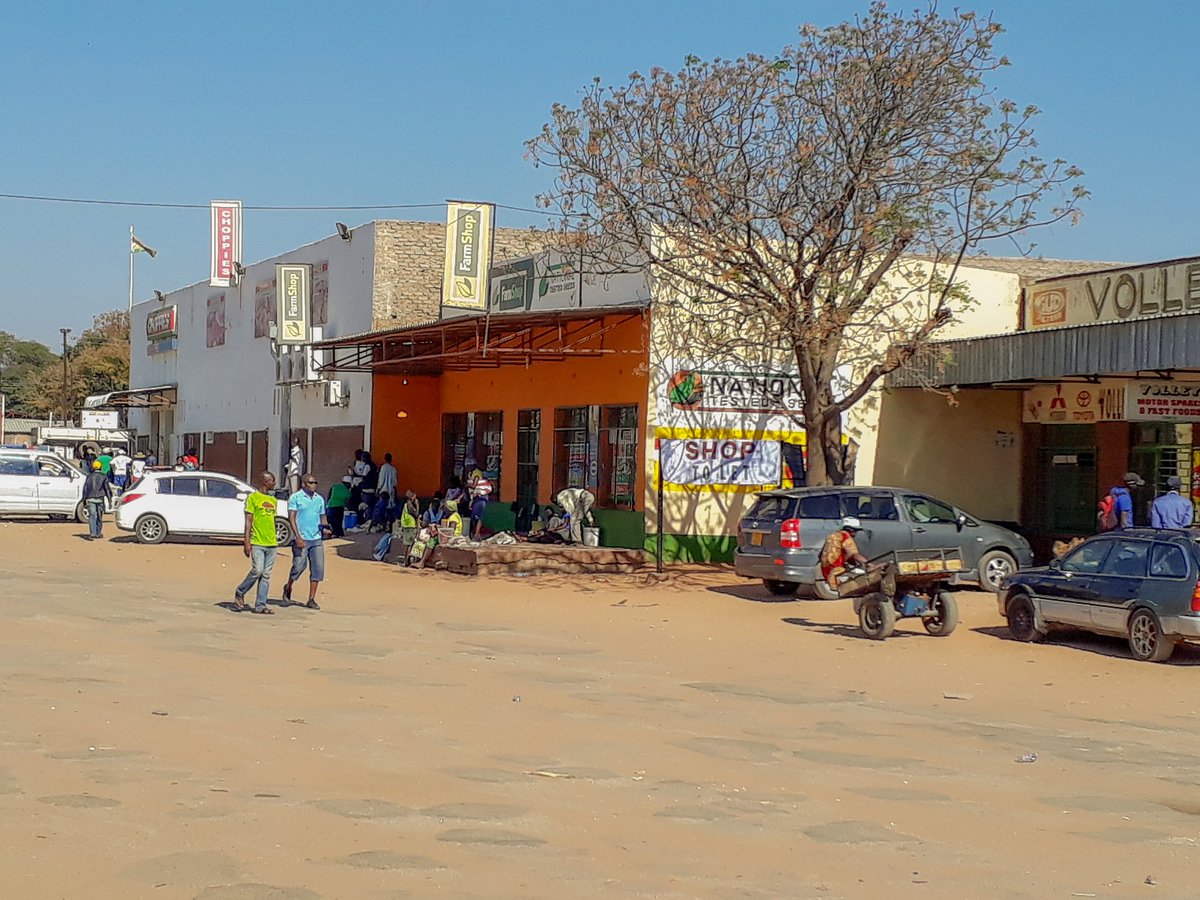New US Sanctions On Zimbabwe: Understanding the Global Magnitsky Act
In a significant development, the United States has announced new sanctions on Zimbabwe, targeting key individuals, including the sitting head of state, President Emmerson Mnangagwa. This move marks a pivotal shift in the US approach towards addressing human rights abuses and corruption in Zimbabwe. As Zimbabweans and people across the world seek to understand the implications of these changes, this article aims to provide a comprehensive breakdown of the Global Magnitsky Act and its impact on the sanctions regimen.
The Global Magnitsky Act: An In-Depth Overview
The Global Magnitsky Human Rights Accountability Act, enacted by the United States in December 2016, represents a significant evolution in the U.S. approach to international human rights and anti-corruption efforts. Named after Sergei Magnitsky, a Russian lawyer and auditor who exposed a massive tax fraud scheme involving Russian government officials but was subsequently arrested and died under suspicious circumstances in police custody, the Act serves as a powerful tool to hold accountable those responsible for human rights abuses and corruption worldwide.
Origins and Purpose
The origins of the Global Magnitsky Act can be traced back to the case of Sergei Magnitsky. In 2008, Magnitsky uncovered a $230 million tax fraud scheme involving high-ranking Russian officials. After reporting the fraud to the authorities, he was arrested and detained without trial. During his imprisonment, Magnitsky was subjected to inhumane treatment and ultimately died in custody in 2009. His death sparked international outrage and highlighted the need for mechanisms to address human rights abuses and corruption on a global scale.
The Act was initially proposed as a way to impose targeted sanctions on those directly responsible for Magnitsky’s death and the corruption he uncovered. However, it was later expanded to have a global reach, allowing the U.S. government to sanction individuals and entities anywhere in the world involved in significant human rights abuses or corruption.
Key Provisions
The Global Magnitsky Act authorizes the President of the United States to impose visa bans and asset freezes on foreign individuals and entities responsible for:
- Gross violations of human rights: This includes extrajudicial killings, torture, or other egregious acts against individuals seeking to promote human rights or expose illegal activity carried out by government officials.
- Significant acts of corruption: This encompasses the misappropriation of public funds, the expropriation of private assets for personal gain, and corruption related to government contracts or the extraction of natural resources.
The Act also allows for sanctions on government officials or their associates who are complicit in these activities, as well as those who provide material support for sanctioned individuals or entities.
Impact and Implementation
The implementation of the Global Magnitsky Act is overseen by the U.S. Department of the Treasury’s Office of Foreign Assets Control (OFAC) and the U.S. Department of State. Since its enactment, the Act has been used to sanction a wide range of individuals and entities, from government officials implicated in human rights abuses to businesspeople involved in significant corruption schemes.
The Global Magnitsky Act has been praised for its targeted approach, which allows for the imposition of sanctions on specific individuals and entities without affecting the broader population of a country. It has also been seen as a powerful diplomatic tool, signaling the U.S. commitment to human rights and the rule of law.
Recent Sanctions and Their Implications
The Department of the Treasury’s Office of Foreign Assets Control (OFAC) has designated 11 individuals and three entities in Zimbabwe for their involvement in corruption or serious human rights abuse. Notably, this includes President Mnangagwa, marking the first time a sitting head of state has been designated under the Global Magnitsky Program.
Concurrently, President Biden signed an Executive Order terminating the national emergency with respect to Zimbabwe and revoking previous orders that authorized Zimbabwe-specific sanctions. As a result, the economic sanctions administered by OFAC pursuant to the Zimbabwe sanctions program are no longer in effect. This transition emphasizes the US commitment to targeting specific individuals and entities responsible for undermining the rights and economic resources of the Zimbabwean people.

[Image Credit: Twitter/X – @InfoMinZW]
Key Figures Designated Under the New Sanctions
The recent sanctions imposed by the United States under the Global Magnitsky Act have targeted several key figures in Zimbabwe, each with significant roles in the government and economy. Here’s a detailed look at some of the individuals and entities designated under the new sanctions:
- Emmerson Mnangagwa: The President of Zimbabwe, Emmerson Mnangagwa, has been designated for his involvement in corrupt activities, particularly relating to gold and diamond smuggling networks. Mnangagwa is accused of providing protection to smugglers and directing officials to facilitate the sale of precious minerals in illicit markets. He has also been implicated in overseeing security services that have violently repressed political opponents and civil society groups.
- Auxillia Mnangagwa: The First Lady of Zimbabwe, Auxillia Mnangagwa, is designated for facilitating her husband’s corrupt activities. Her involvement in corruption includes the misappropriation of state assets and the expropriation of private assets for personal gain.
- Kudakwashe Regimond Tagwirei: A prominent Zimbabwean businessman, Tagwirei is a close ally of President Mnangagwa and has significant influence over major sectors of Zimbabwe’s economy. He has been designated for providing financial and material support to the government and for engaging in corruption related to government contracts and natural resource extraction.
- Sandra Mpunga: Tagwirei’s wife, Sandra Mpunga, has been instrumental in her husband’s business activities and is designated for acting on behalf of Sakunda Holdings, a firm implicated in facilitating state corruption.
- Sakunda Holdings: This Zimbabwean firm, owned by Tagwirei and Mpunga, has been designated for its role in supporting corruption and for being controlled by individuals engaged in corrupt activities.
- Fossil Agro: A subsidiary of Sakunda Holdings, Fossil Agro has provided material support to its parent company and is designated for its involvement in corruption.
- Obey Chimuka: A longtime business partner of Tagwirei, Chimuka is designated for his role in owning and controlling companies that have facilitated acts of corruption, including Fossil Contracting, which has received government contracts linked to corrupt practices.
- Fossil Contracting: Owned by Obey Chimuka, Fossil Contracting is designated for its involvement in corruption related to government contracts. The company has received contracts from the Government of Zimbabwe that have facilitated acts of corruption, further entrenching the network of corrupt practices within the country’s economic and political landscape.
- Constantino Chiwenga: Zimbabwe’s First Vice-President, Constantino Chiwenga, is designated for his role in leading entities that have engaged in serious human rights abuses, including the violent repression of political activists and civil society organizations.
- Oppah Muchinguri: As Zimbabwe’s Defense Minister, Muchinguri is responsible for overseeing the Defense Forces and is designated for her leadership in entities that have engaged in violent repression.
- Godwin Matanga: The Commissioner-General of the Zimbabwe Republic Police (ZRP), Matanga is designated for his leadership role in an entity whose members have engaged in serious human rights abuses, including participating in ferret team activities.
- Stephen Mutamba: A Deputy Commissioner-General of the ZRP, Mutamba is designated for his role in overseeing members who have engaged in the violent oppression of political opposition.
- Walter Tapfumaneyi: The Deputy Director General of Zimbabwe’s Central Intelligence Organization, Tapfumaneyi is designated for his involvement in serious human rights abuses relating to his tenure, including disrupting electoral processes and being involved in kidnappings.
- Owen Ncube: Former Minister of State Security and recently reappointed as Minister of State for Midlands Provincial Affairs, Ncube is designated for ordering security services to identify, abduct, and mistreat individuals assessed to be supporters of opposition groups. He is also reported to lead a violent group responsible for attacks and killings around Kwekwe.
The Path Forward: Reform and Accountability
The transition to sanctions under the Global Magnitsky Program provides an opportunity for the Government of Zimbabwe to undertake key reforms to improve its record on human rights, good governance, and anti-corruption.
As Zimbabweans around the world seek to understand the implications of these new sanctions, it is crucial to recognize the importance of reform and accountability in ensuring a future where human rights atrocities and corruption are not tolerated.



